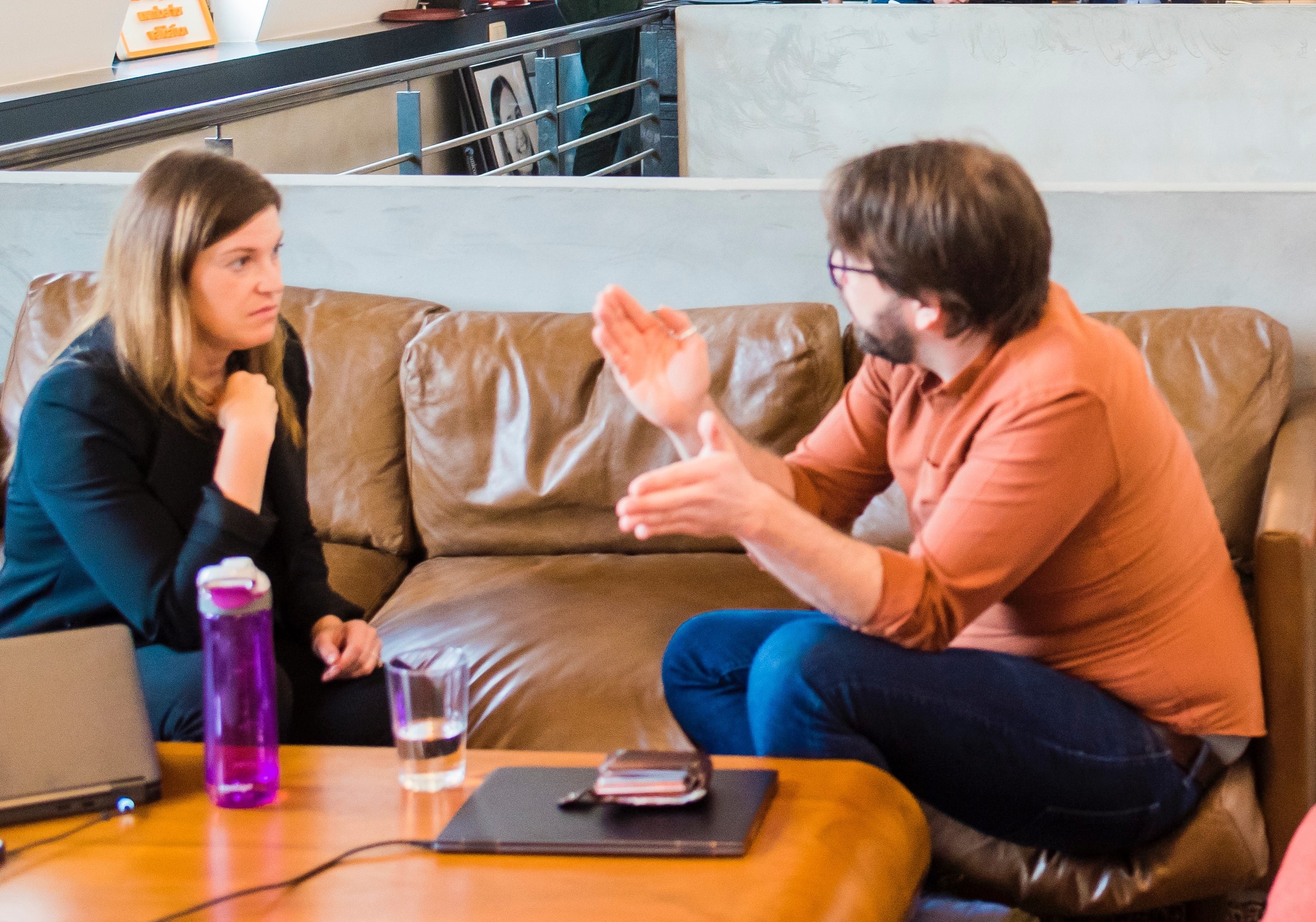Give me a week away…
What happens when you give a group of lecturers the time and space to focus undisturbed on a new course? What are the ingredients for a successful course development experience? A recent pilot set out to find out.
Designing and building a new (online) course is an endeavor requiring the close cooperation of several parties, and one that usually takes several months to complete – nine being the average. However, once lecturers are given the opportunity to free up their schedule and dedicate themselves to only developing the course, in an environment whereby there are no other commitments and responsibilities, where the time can be spent in just the one task in hand, then much can be achieved in a single week.
In September, five content experts and one fully-trained teaching assistant from the faculty of Architecture and the Built Environment led by Professor Carola Hein, together with education support from the Extension School, went away to Dordrecht to put this boot camp experiment to the test and find out how much of a course design could be delivered in just four and a half days.
Setting the course
Of course, firstly a good introduction round ensured that all participants were on the same page and that essentials such as setting the goals, discussing expectations and running through the practicalities of the upcoming days were covered – after which work could begin in earnest.
This first step of setting the conditions right at the start is key to the well running and ultimately the success of the boot camp. The introductory meeting sets the scene and the foundations from which to build the course, it allows the course team to agree on the course’s ‘story’ and the course outcomes. With those clearly established, they could go on to think together what was the best way to tell their story; in other words, the best way to teach what they wanted to teach.
“Based on the course proposal, we started to define who our personas were, hone in on what they needed and what we could give them, what they would be able to do after taking the course that they couldn’t do before,” recounts Bea de los Arcos, learning developer facilitating this pressure-cooker experiment.
Making the most of the dedicated time and space, the course team focussed on sketching out the narrative and assessments for each of the course modules – and revised, discussed, reviewed and strengthened them over and again. They – twice – pitched the course to three potential professional learners. And “conversed, dialogued, laughed, got frustrated, tensed the line and let go and” – in Bea’s words, “were sustained by each other’s enthusiasm as well as by a 24/7 supply of coffee/tea/other liquids and solids of a healthy type”.
A fully-fledged storyboard
Is it then realistic to expect the delivery of whole a course in a week? Hardly, but what can and was delivered is a fully-fledged storyboard. Starting off with the essential elements from the course proposal, such as rationale, learning objectives and outcomes, structure, and target audience – at the end of their boot camp, the course team had created a well-shaped, engaging and practical story that could already be told ‘right now’ – not in six months’ time.
They had designed the modules and content, together with developing initial scripts and requirements and descriptions of the type of materials. It was also clear what was needed to bring the course to completion and who was needed to deliver it.
A not indifferent benefit from this pressure-cooker approach to course development is that from the start everyone is on the same page, using the same narrative, thus enabling the group to work out together how to move forward to produce the course in an cooperative, aligned manner and in a much shorter timescale.
A new course
The resulting course Water Values: Leveraging the Past for Sustainable Water Systems will be officially launched at the UNESCO Water Conference in New York in March 2023.launch in early 2023.
It will be an interesting complement to the existing online programme by Professor Hein Water and Ports, Historic Cities and Landscapes, which examines the many factors that will result in the sustainable development of port cities, thus laying the foundations for shaping the present and designing the future of historic cities in socially and environmentally acceptable ways.
Success factors
If you are interested in setting up your own course development boot camp experience, the following elements – although they may seem obvious – are key:
- a committed course team, willing to take the plunge and focus for a longer period of time on the development of a course, ideally already familiar with/trained in (online) course production, and a coordinator to make sense and record the conversations and their outcomes;
- a learning developer to help guide those conversations and “push forward and pull back when needed, read the room, keep the focus, manage time on and off task, recap at the end of the day and set goals for the following”;
- a solid course proposal giving a clear course narrative with defined learning goals, target audience and structure;
- a “clear idea of what you want to achieve, how far you can reach, but also a readiness to accept that the posts will shift and to allow the freedom and flexibility to change the plan”;
- cleared agendas for the agreed time away;
- a suitable venue to work at optimal conditions – and survive it all.
Insider’s view
Want to know what it was actually like? Read de los Arcos’ blog for more insights into how the boot camp came about and what the days working on the course were like.
For more information, you can also reach out to her at Bea de los Arcos, TU Delft Extension School for Continuing Education.
